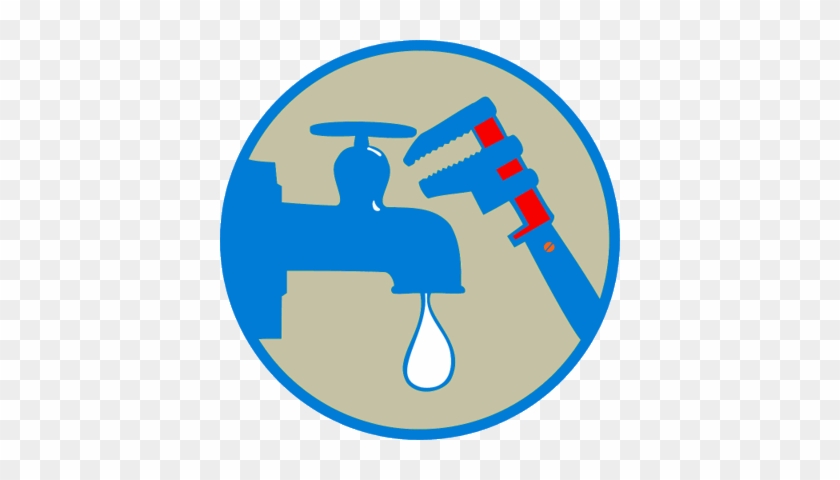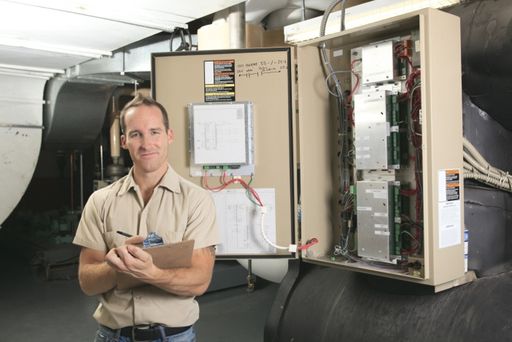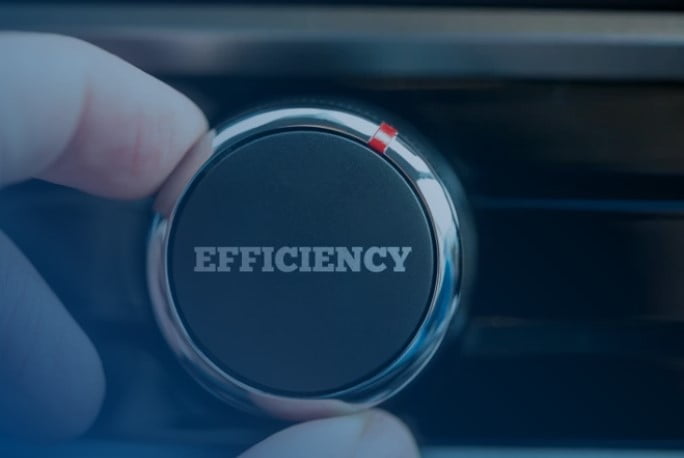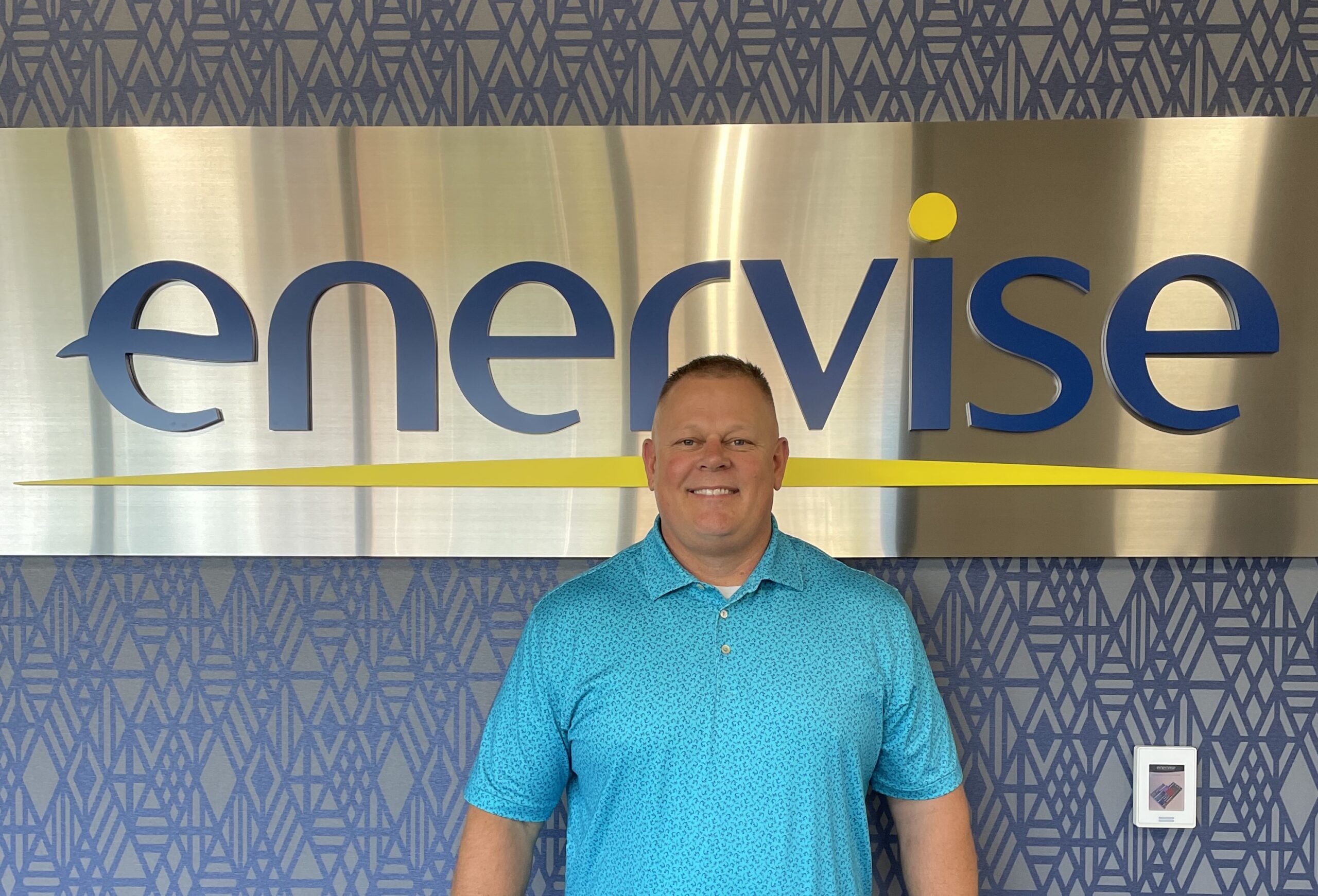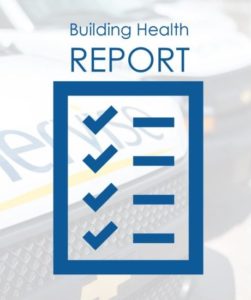There are so many questions that could be asked about commercial building HVAC maintenance, and we have heard most of them. However, while we do get all sorts of questions about all sorts of things related to commercial HVAC and building management systems, there are a few that we would consider the most common. Here they are, with our answers:
1. How Often should I Change Filters?
There is no hard and fast rule about when to change filters, and it will depend largely on the size of your building, how many people work there, the type of filter you specify on maintenance, and what you do. So it “depends” is truly the right answer. In an ideal world you would change a filter when it is full of things filters catch. You would need to measure the drop in pressure across the filter telling you it’s full with a mono-meter, however most commercial air handlers are not equipped with these devices. So filters are typically scheduled to be changed when you’d anticipate they are full of dirt and other stuff filters catch.
At a minimum, this would be quarterly for standard “throwaway” media filters, although in high traffic areas once or twice a month may be needed. You may have to adjust this schedule if your filters get dirty faster. If you are using pleated high efficiency filters MERV 7 or higher to improve indoor air quality, you might be able to go longer between changes. Your commercial HVAC Company should advise you for each system in your building as to the right schedule to maximize your investment in needed filter changes.
2. How Long Will My HVAC System Last?
This answer is actually trickier than it seems, since different types of equipment age at different rates. The amount of “run time” is also a factor. Think about if you ran your car 24 hours a day, vs. just during normal working hours 8 – 5. You’d be putting three times the mileage on your car. Generally, an HVAC system will last between 12 and 15 years, while some larger tonnage systems, chillers and boilers can last 20 to 35 years depending on the brand, type of installation and location.
Your building automation controls are another consideration. Many buildings compete with peer buildings for tenants. To ensure comfort levels are adequate these are retrofitted, recommissioned and updated every few years to keep up with security and comfort needs as technology improves. Speak to your HVAC Company to find out the exact expected lifespan and warranty for the equipment you are considering. This ASHRAE chart is a useful reference.
3. Should I Do Repairs In-House or Outsource?
One of the more common questions we get from facility managers is whether they should do repairs and maintenance themselves, and the answer is, that depends.
Is your facility large enough to justify full-time, in-house maintenance presence? If you have a larger facility or campus, you may ask yourself: “When could outside mobile HVAC service technicians complement my in-house maintenance team?”
Typically, in-house teams are asked to do a lot of general repairs in a facility. It may not be prudent to invest in specialized tools and training for these individuals to handle infrequent, complex repairs. An outside resource could complement your team with specialized tools and expertise, such as combustion testing on:
- steam and hydronic boilers,
- cooling tower overhauls,
- building controls programming and integration,
- air-conditioning compressor overhauls, or
- replacement of mechanical systems.
What are the most common repair issues on HVAC systems? Believe it or not it is repairs from poor maintenance practices. The most common repair is due to condensate drain leaks. Close seconds are clogged condenser coils, plugged filters or broken belts. If these repairs are done on an emergency basis vs. during routine maintenance, it can significantly increase avoidable operational costs for building owners.
4. What Does My Warranty Cover?
This is another common question with a very broad answer. You will actually have several warranties on your HVAC equipment, depending on when and how it was installed.
First, there is the manufacturer’s warranty on the parts and equipment themselves. Then there is the workmanship warranty on the installation or repair. Typically air-conditioning compressors may have an extended warranty option of up to (5) five years, but this warranty must usually be purchased as an extra from the installing HVAC contractor. Of course, none of these will cover consequential damages, acts of God or malicious damage (like copper thieves), so if that is the problem, your building insurance will need to cover it!
